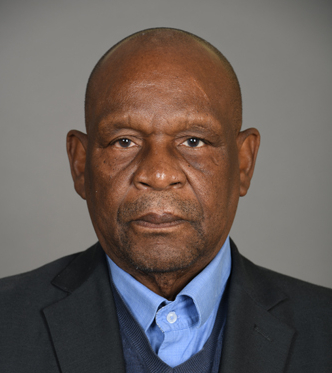Peter Setou, Chief Executive, Vumelana Advisory Fund
This Mail & Guardian webinar on Land Reform was sponsored by Vumelana Fund Advisory. The panelists were Dr Mathole Motshekga, Chairperson of the Adhoc Committee for Section 25; Wandile Sihlobo, Chief Economist, Agricultural Business Chamber of South Africa (Agbiz); Bulelwa Mabasa, Director and Head of the Land Reform Restitution & Tenure Practice, Werksmans Attorneys; and Mazwi Mkhulisi, Programmes Manager, Vumelana Advisory Fund. It was moderated by Peter Setou, Chief Executive, Vumelana Advisory Fund.
Land reform has been one of the most highly debated issues in the country’s local political landscape in recent years. It’s shaped election campaigns, and the way in which political parties have handled the issue has brought them into — and out of — political favour with voters.
 Professor Mathole Motshekga, Chairperson of the Adhoc Committee for Section 25
Professor Mathole Motshekga, Chairperson of the Adhoc Committee for Section 25Now, the Expropriation Bill of 2020 has been submitted to parliament for introduction. Public hearings around the legislation have been completed and the final report on the hearings is being compiled. The Ad-hoc Committee appointed to initiate and introduce legislation amending Section 25 of the Constitution has been re-convened, much to the chagrin of opposition parties and the applause of the ANC and pro-expropriation groups such as the Economic Freedom Fighters. Once it has been accepted by all parties, the bill will be tabled at the National Assembly for consideration, says Dr Mathole Motshekga, Chairperson of the Ad-hoc Committee. As the speakers said, it’s crunch time.
But with concerns that between 70% and 90% of land reform projects have been unsuccessful, leaving vast amounts of arable land empty or under-utilised, what needs to take place in order to make South Africa’s efforts successful?
Bulelwa Mabasa said the starting point is understanding the several concepts that underpin it. “Land reform as a programme is not limited to expropriation,” he said. “It’s important to frame the discussion of reform, understanding that there are at least four pillars that formulate it.”
The first pillar comprises a programme that allows land claimants to submit claims when they can show that they were dispossessed of land. They’re then entitled to land or other commensurate forms of compensation, she explained.
 Wandile Sihlobo, Chief Economist, Agricultural Business Chamber of South Africa
Wandile Sihlobo, Chief Economist, Agricultural Business Chamber of South AfricaThe second pillar is redistribution. In terms of the constitution, the state must ensure the “redistribution of land on an equitable basis,” said Mabasa, arguing that this programme needs more legislative intervention.
Another necessary pillar, she opined, currently missing from the framework, is land administration. “This would be a process under which all state departments and governments create a system where it is known who owns South Africa, and everybody has access to that.” The fourth pillar deals with security of tenure. “This is to ensure that people such as farmworkers are not evicted arbitrarily.”
The much-discussed idea of expropriation “is only a tool that allows government to acquire that land,” said Mabasa. “Expropriation and land reform are not interchangeable concepts.”
Still, at the root of it all, is the need to move land into the hands of those who were historically dispossessed of it, said Motshekga. “Our point of departure should simply be that the majority of South Africans live in the ‘native reserves’ and these include the townships [and] informal settlements,” he says. “The land has got to belong to all the people of South Africa, and there’s no other mechanism except expropriation.”
 Mazwi Mkhulisi, Programmes Manager, Vumelana Advisory Fund
Mazwi Mkhulisi, Programmes Manager, Vumelana Advisory FundWandile Sihlobo pushed back against the widely-held belief that land reform in South Africa has been extremely sluggish. “In South Africa, there’s a general narrative that land reform has been slow. Often, commentators quote that 9% of land in South Africa is owned by black people. But agricultural economists are skeptical of that figure, said Sihlobo, who holds the view that between 17% and 21% of land in South Africa is in fact owned by black South Africans.
“The state has, to a certain extent, been good in acquiring some of these land parcels,” said Sihlobo. Where it has failed, he argues, is in transferring land, and ensuring that it is made productive and that it improves the standard of living for its owners. He agreed with Mabasa that more focus needs to be put onto the concept of land administration.
But in order to achieve the broader aims of land reform, strong community-private partnerships will need to be forged, said Mazwi Mkhulisi. “The importance of partnerships cannot be overemphasized,” he told webinar listeners. “Partnerships bring in private capital to complement state resourcing. What the state is able to do is quite limited, in terms of covering the whole ambit of the land reform needs.
 Bulelwa Mabasa, Director and Head of the Land Reform Restitution &Tenure Practice, Werksmans Attorneys (Photo: Jeremy Glyn)
Bulelwa Mabasa, Director and Head of the Land Reform Restitution &Tenure Practice, Werksmans Attorneys (Photo: Jeremy Glyn)“It’s important to look at private capital so that we can liberate resources, information, skills, the networks of established businesses … and use those linkages to connect land reform beneficiaries to opportunities of success. Let’s never underestimate the contribution of the social compacting that is already happening in South Africa,” he said.
In Mabasa’s opinion, the thrust of those engagements should come from the people who will be most affected by them. Decision-makers should “not underestimate the importance of engaging meaningfully within communities. Land reform ultimately belongs to the people. We need active citizenry, and we need communities to be the beneficiaries and have the loudest voices. It’s not just an academic debate for politicians and professionals.”
For more details, visit https://www.vumelana.org.za/
To view the webinar, click below: